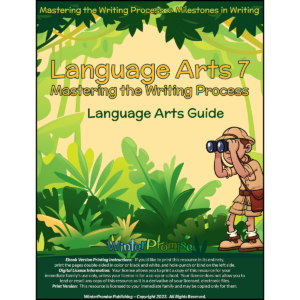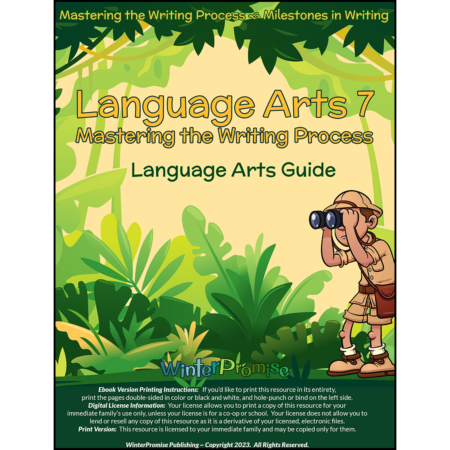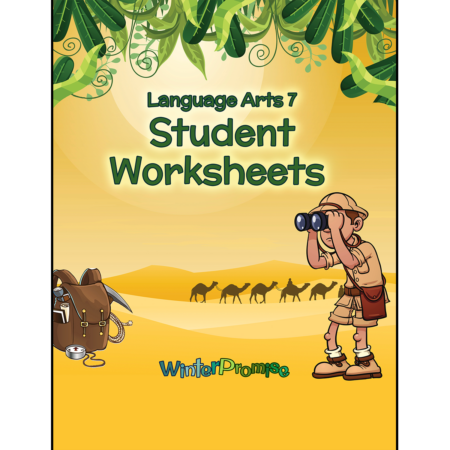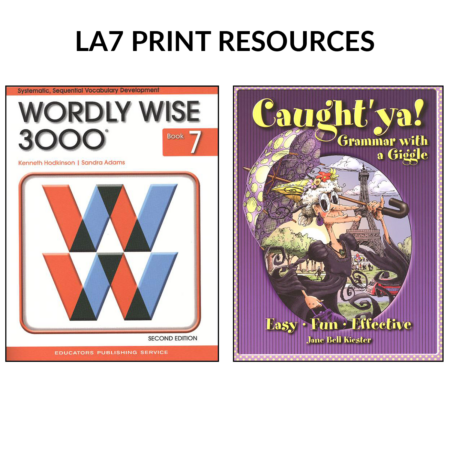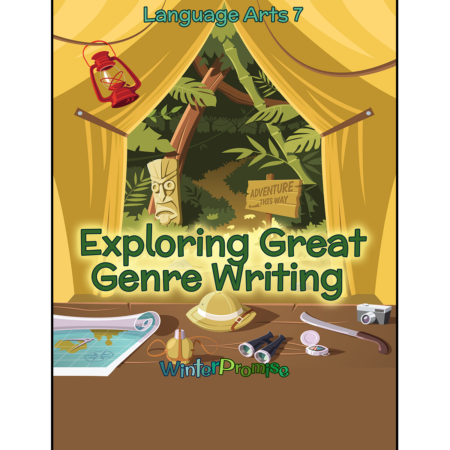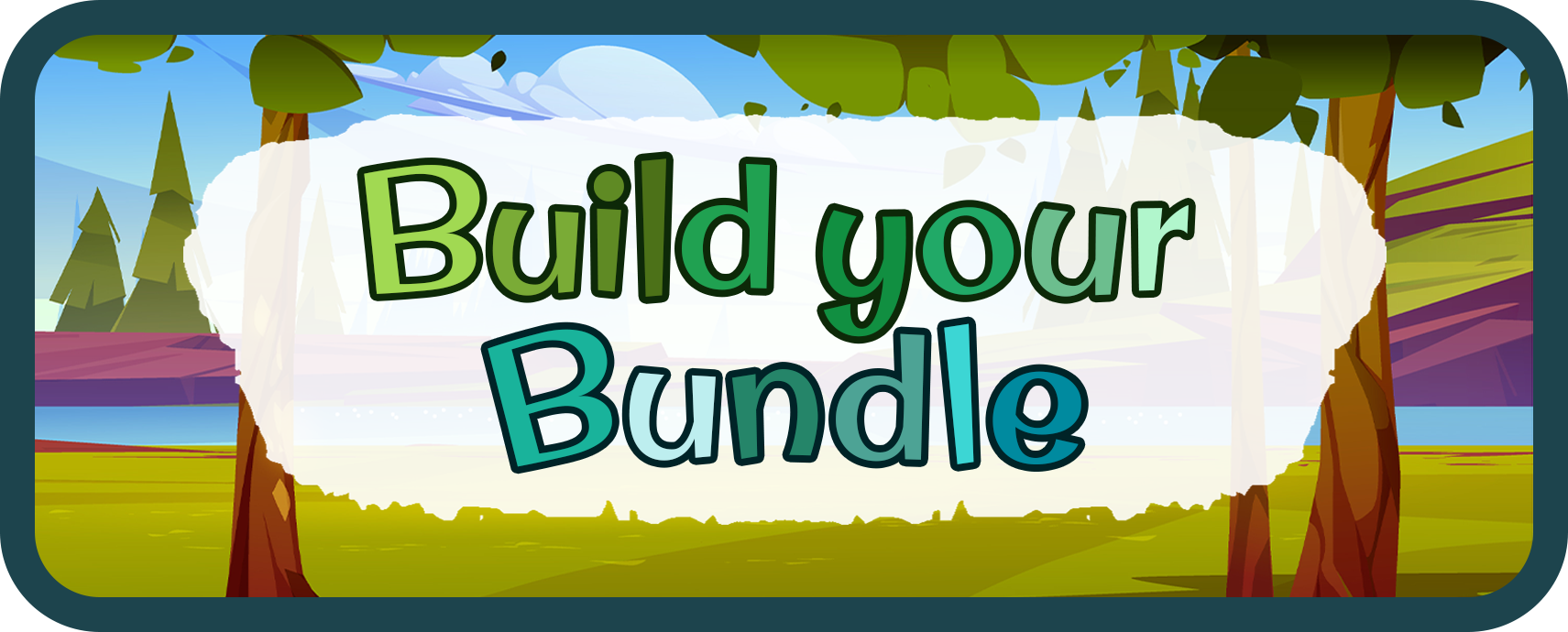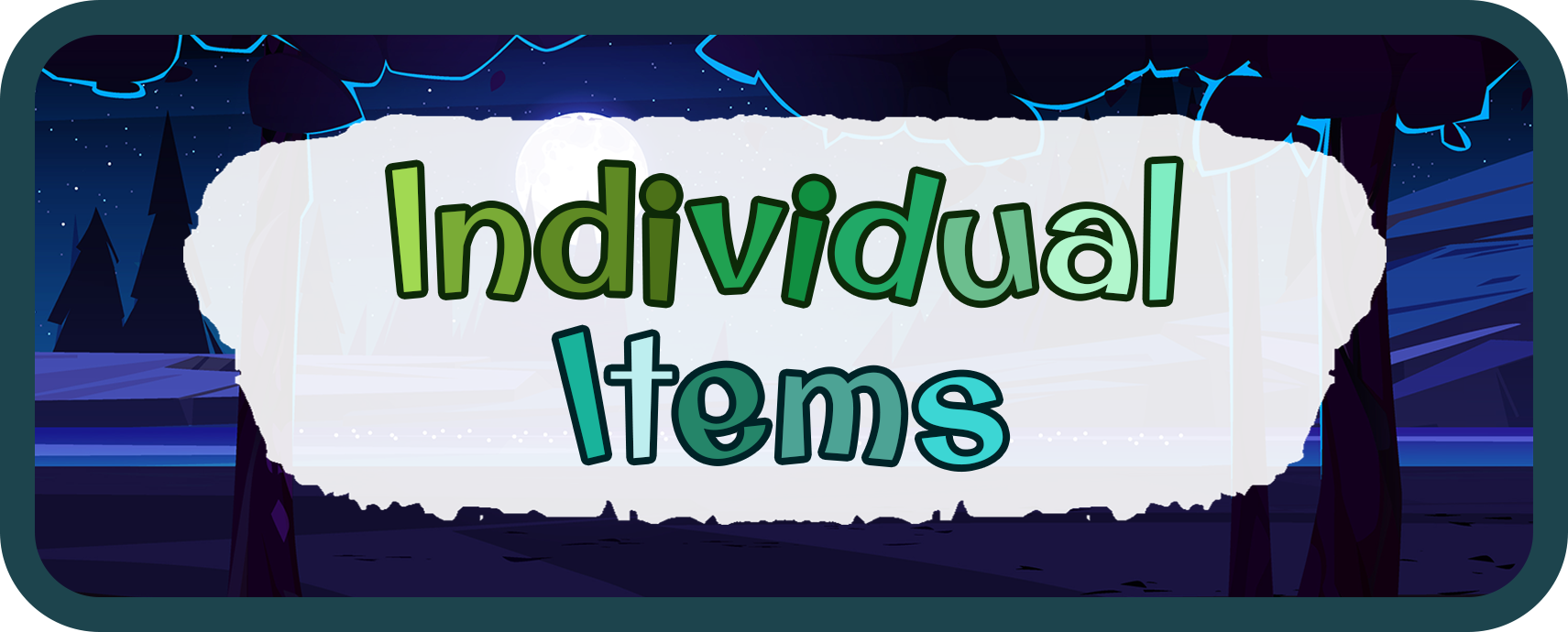LA7 Guide
Ebook
This guide is 36-week schedule that coordinates the variety of resources included in this program. It schedules, writing instruction, writing ideas, literature, literature evaluation, spelling, vocabulary, grammar, and other language skills. This guide also has an answer key for the resources “Caught ‘Ya: Grammar with a Giggle” and LA 7 “Student Grammar Worksheets.” Teaching helps and other references are included in the front matter of this guide. Shown below is a thorough look at how this guide covers and schedules the different concepts in this guide.
Process Writing – Not to be confused with the “Writing Process,” process writing is how an author explains how something is done, or the “process” of how something is accomplished.
Key Skills:
-
How to Outline Process Writing
-
Using Transition Words
-
Developing a Great “Hook” to Start Your Paper
Informational Writing – What most people imagine when they think of writing a report, informational writing relays information to the reader. It only gives information, relaying facts on people, places, things, or events.
Key Skills:
-
How to Outline Informational Writing Depending on Your Topic
-
Developing a Bibliography
Personal Narratives – These narratives express the author’s own experiences with a focus on sharing feelings and events from the author’s point of view.
Key Skills:
-
How to Outline a Personal Narrative
-
How a Personal Narrative Outline Contrasts with Other Genre Outlines
-
Learning to Show, Not Tell
Fictional Narratives – A fictional narrative allows a writer to tell a made-up story, or a fictional account of an event. Fictional narratives come in many types: historical, fantasy, science fiction, mystery, and modern fiction.
Key Skills:
-
Outlining Fictional Narratives
-
Developing Setting, Characters, Conflict, Events and Resolution
-
Three Great Ways to Begin Fictional Narratives
Persuasive Writing – This type of writing expresses and opinion and tries to persuade others to believe in a particular point of view, or take action on a particular issue.
Key Skills:
-
Outlining Persuasive Writing
-
Choosing an Effective “Hook” for Persuasive Writing
As students finish their first draft, and then their final draft, they will use the included Personal Writing Checklists to check their work. This list includes specific skills in areas of planning and organization, ideas, grammar and mechanics, presentation, and writing goals. It allows students to think through how well they have met key goals on each paper, and where they tend to struggle as they move through the program.


